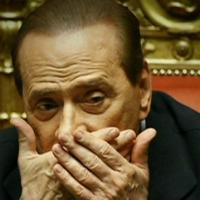
Debt crisis hits Eurozone’s third largest economy
“Italy may be beyond the point of no return”, a gloomy report by Barclays Capital said this week. “We doubt that Italian economic reforms alone will be sufficient to rehabilitate Italian credit and eliminate the possibility of a debilitating confidence crisis”. Then came the dramatic developments in Rome.
Italian prime minister, Silvio Berlusconi, has finally agreed to resign after losing his absolute majority in the lower house of parliament. Following months of intense pressure from the European Union, the IMF and the financial markets, abandoned by Confindustria (Italian employers’ federation), the Catholic Church, and finally members of his own government coalition and the party which he created (People of Freedom (PDL)), he has said that he will go – but only after implementing another round of austerity measures as demanded in yet another letter sent to Italy by the EU.
‘Sacrificing’ Berlusconi was meant to calm the market ‘Gods’. Instead it has opened up further political and economic instability with European-wide and international repercussions. Global stock markets have fallen and yields on Italian government bonds have surpassed the 7%, ‘point of no return’ at which Greece, Ireland and Portugal had to be bailed out. Italy is in the economic equivalent of intensive care; the IMF and EU monitors are regularly checking that the patient is taking the prescribed medicine of cuts, privatisation and attacks on workers’ rights. But, with a debt of €1.9 trillion – bigger than Greece, Portugal and Ireland combined, trying to ‘save Italy’ by using the existing money in the European Financial Stability Facility (now with just €250bn left in it) would be like bailing out the Titanic with a thimble.
Silvio Berlusconi
The ECB policy of buying Italian bonds has not stemmed the crisis which threatens the whole Eurozone and beyond. Hence the pressure on Berlusconi to quit, with the hope that an alternative government would reassure the markets and impose the austerity measures that he seemed unwilling or unable to take.
What will happen now?
Some fear that Berlusconi is merely buying time in order to buy off disaffected MPs and shore up his majority, as he has managed to do in the past. While this seems unlikely this time, the post-Berlusconi scenario is far from clear. Will there be early elections? Berlusconi himself has raised this but most of his party and his coalition partner, the Northern League, are opposed, as they face possible electoral defeat. But the main opposition party, the PD (Democratic Party), is running scared of fresh elections too. It has no agreed political programme, either within the party or with its possible coalition partners, and is divided on every issue apart from being anti-Berlusconi. They prefer a technocratic government (headed by a non politician such as Mario Monti, former EU commissioner) to do the dirty work of implementing austerity or even a government of ‘national responsibility’ involving all the parties. Both of these options are possible. It is also not ruled out (although less likely) that the PDL could form a new broadened coalition led by Angelino Alfano, secretary of Berlusconi’s party and a former justice minister.

Angelino Alfano
Whatever the political outcome, however, it is very clear what awaits the Italian working class and many from the middle-class. The latest EU prescripton demands the privatisation of state assets and local services, attacks on pensions, cuts in public spending, including job losses, and more measures to make it easier to sack workers.
While there will be much rejoicing when working class people finally see the back of Berlusconi, there is little enthusiasm for a PD-led government. Sections of the PD openly welcomed the first ECB austerity letter when it was sent in August and the party has no alternative to that of trying to force workers to swallow the austerity medicine. While there may be some initial support for a technocratic government, because of people’s disgust at politicians in general, when the reality of what it will mean for services, jobs and living standards hits home this could rapidly turn into opposition.
Berlusconi has been forced to agree to resign through a ‘palace coup’, not through a mass movement of workers, with eight ‘traitors’ (as he called them) from his own party joining the opposition in abstaining on a vote on the public accounts. But the ‘masses’ are far from quiescent. In September, millions of workers responded to a general strike call by the CGIL union. Hundreds of thousands marched through Rome on 15 October in opposition, not just to the government, but to the ‘system’ itself.

Demonstration in Rome on 15 October
A new generation of youth is rebelling against a future with no prospects (youth unemployment is 30%) and a system in which the profits and interests of a few reign supreme. The post-Berlusconi period will be one of cuts, crisis, struggle and resistance in which the forces of a real, mass political alternative to capitalism can be forged.


Be the first to comment